Berlinale 2020: 8 important films about women
Categories: Cinema | Europe | World
By Pictolic https://pictolic.com/article/berlinale-2020-8-important-films-about-women.htmlOn March 1, the 70th International Film Festival closed in Berlin - one of the most social in recent years. Film critic Alice Taezhnaya selects eight films from the festival program, where the fate, limitations and struggle of a woman are in the foreground.
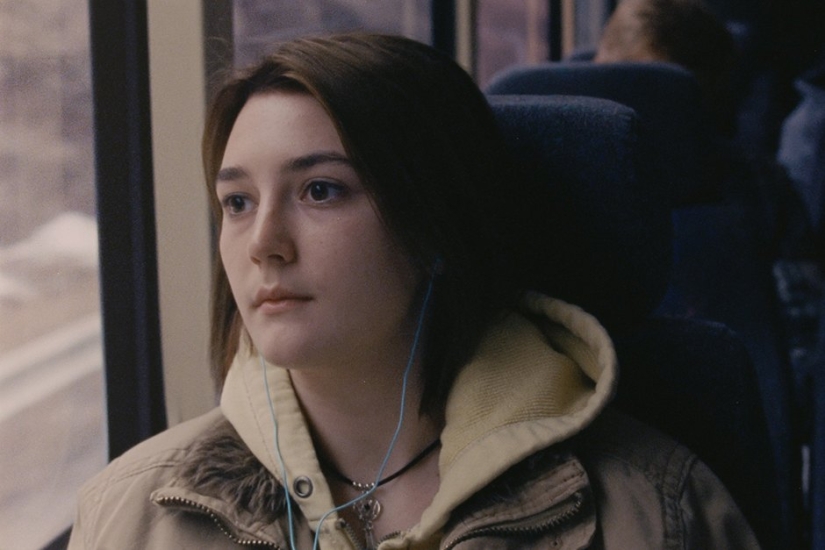

Rosy cheeks, blonde hair, a shifty look in gray eyes — we almost tirelessly watch Anna up close is a simple girl who works as a kindergarten teacher, and is also fond of skydiving. Anna has a lot of problems with the outside world, but the director has enough taste and talent not to manifest them.
Then senior colleagues in the team find fault with her parenting methods, arranging polite interrogations at Friday professional meetings. Then mom listens with half an ear to her already grown-up daughter. Then friends miss her words. Anna is alternately sick, lonely, incomprehensible, anxious, scary and fun — her mood swings and reactions are completely unpredictable, but very human.
A short and very talented movie about a whirlwind in the head and a disorderly life in which it is difficult to compare real causes and mental reactions — and perhaps it is not necessary, because the unsolved feelings sometimes make us human.
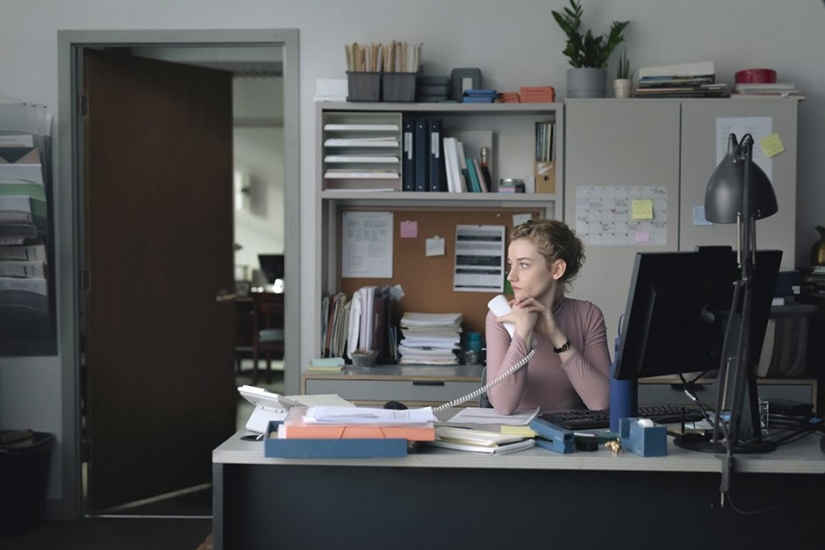
Any great career starts from the bottom — that's what the capitalist dream says. With hopes for a producer's chair in ten years, a young blonde comes to the film company as an assistant: her work period is five weeks, she is very tired and is content with give—and-bring tasks.
The work itself — printouts, copies, letters, coffee — does not upset the girl as much as the boorish attitude of senior male colleagues, the need to humiliate themselves in front of bosses on pain of dismissal and cover up the nasty deeds of others. The assistant finds out that a very young girl without qualifications is first taken to the hotel by the boss, and then hired, and decides to file a complaint with the staff service.

The reality of Korean life: young girls, getting an education and just starting to build a career, most often get married and start living a conservative married life, being part of another person's schedule. This is exactly what happens to the main character of the film: for five years she has not parted with her husband for a single day, but at the time when he went on a business trip, she can finally visit three friends.
Traveling from guest to guest, she learns news about others, tells the same ostentatious story about marital happiness on repeat, gets drunk in a secular way. And he gets into three awkward and funny situations — with a neighbor clarifying the relationship (the subject of the dispute is feeding stray cats), with a would—be stalker and a former lover much older than himself.
Hong Sang-soo is again making a film about everyday boredom and the repetition of events, about the scarcity of our choices when it comes to daily life, and about the empty chatter in which we hide from reality.

A high school student who works after school as a cashier in a supermarket hides her pregnancy from everyone. They won't understand at home (mom doesn't care, dad seems to be a rapist at all), the gynecologist will turn on a pro—life video about the embryo's soul, classmates will condemn - and only the best friend will understand and put all the pocket money for an abortion in New York (because in In Pennsylvania, it can only be done with the approval of seniors).
The first trip to the Big Apple for the main character is not a joyous tourist, but a forced medical one: there she will find out the real term of her pregnancy and the measures that she will have to take. Eliza Hittman's drama, which won the second most important prize at the Berlinale, is a case of cinema with a "feminine look" that every woman who is faced with an unwanted pregnancy or violence will intuitively take on.
Hittman talks about the everyday nature of sexual and reproductive violence in a simple question—and-answer form: answering questions from a psychologist's questionnaire before an abortion, a girl should choose the words "never", "rarely", "sometimes", "always". Was there forced sex with you? Did your boyfriend threaten or humiliate you? Are you afraid of someone's opinion about your body? Not only the heroine answers these questions with a lump in her throat and eyes in a wet place — the director addresses them to his audience and viewers.
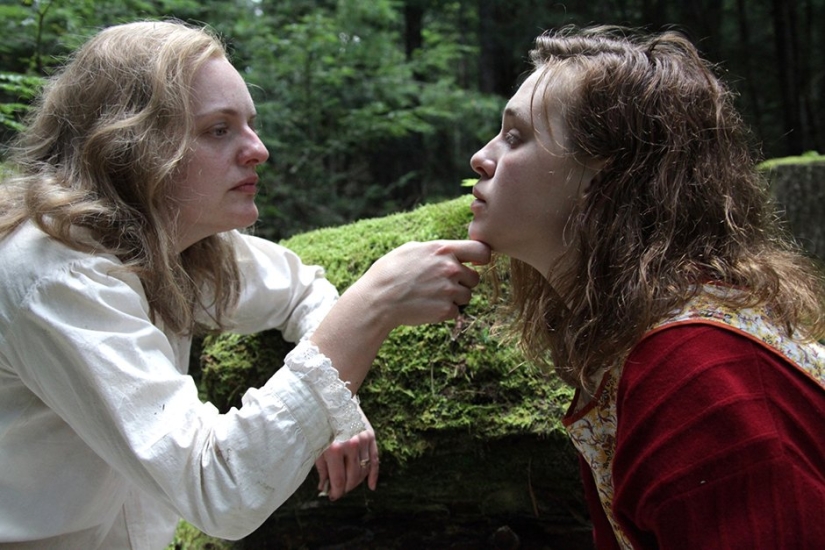
One of the heroines of the psychological drama Josephine Decker is inspired by the figure of the writer Shirley Jackson — it is her story "Lottery" that another heroine reads in The New Yorker on the train. Two women of the same destiny and different generations will walk together the path from suppression to relative liberation. Youth and marriage to a promising man, life on the sidelines, in fact, in a closed space, the destined joy of household chores.Shirley swallowed this life in full, but found the strength not to bury her writing talent in the ground. Her younger friend, pregnant and hastily married, does not yet understand where she got to. Decker confuses the cards and chooses the genre of a hallucinogenic thriller to tell the familiar story of the conditional Betty Draper.
Empowerment is achieved here in two ways: through an acute marital conflict and self—expression - two windows available to a woman locked at home in the middle of the last century.
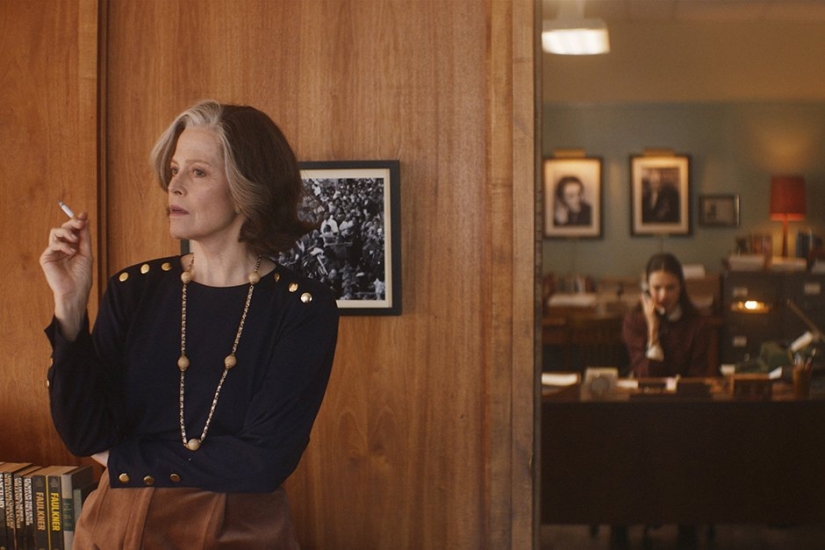
An enthusiastic provincial woman comes to New York with a notebook - of course, to write poetry — and gets a job at a literary agency. From the threshold, she is warned that vonnabi authors here do not like to take on a permanent basis, so their literary ambitions should be encrypted more carefully. In addition to dreams of a poetry collection, the heroine brings a boyfriend looking down on her to a big city (he just manages to write and not doubt himself).
In one year in a conservative working environment (the boss is played by Sigourney Weaver), the girl not only learns the unpleasant routine of the future literary agent, but also becomes an unofficial recipient of letters from fans of great American writers — primarily Salinger. His bestseller "The Catcher in the Rye" prompted teenagers of the mid-20th century to write kilometers of confessions.
Strongly reminiscent of "The Devil Wears Prada" in the misadventures and trials of the main character, "My Year with Salinger" utters an important, albeit unoriginal thought: being on the premises of creative people and being creative yourself are still very different activities.
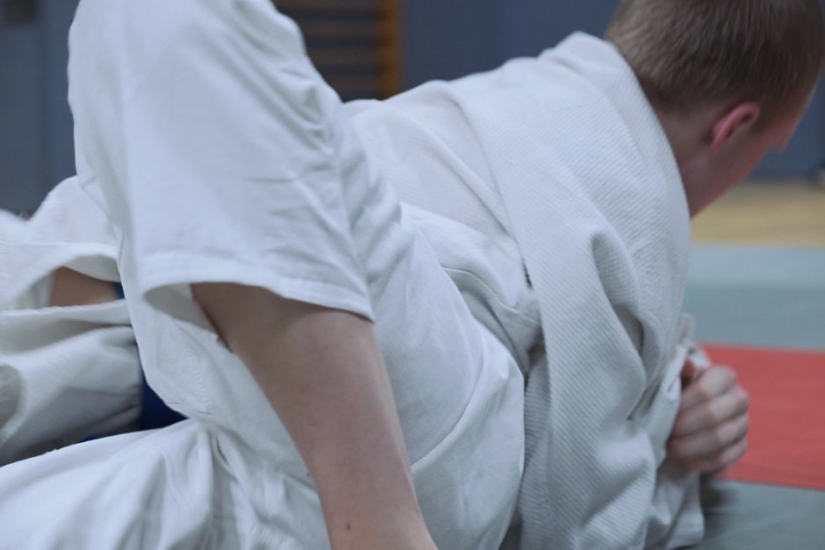
For children from not the most prosperous families, sport is one of the simple social elevators and ways to distract from a potentially criminal scenario. That's how the main character and her boyfriend or boyfriend turned out to be in the fight (it seems, judo). Walking on the edge, teasing and beating each other, they are the engine of a company of five people in which it is impossible to trace the psychological dynamics.Guys gossip, attack each other, quarrel, trust each other, envy, help out and gather in coalitions. Their unpredictable behavior is, ironically, the only stability: you can be ready for a broken finger from a belligerent best friend, while not at all for adult life outside of a poor apartment.
The debut film by German director Melanie Walde is a study of borderline behavior in a teenage environment, where bullying is presented as a game, and competition is like air for a common flame.
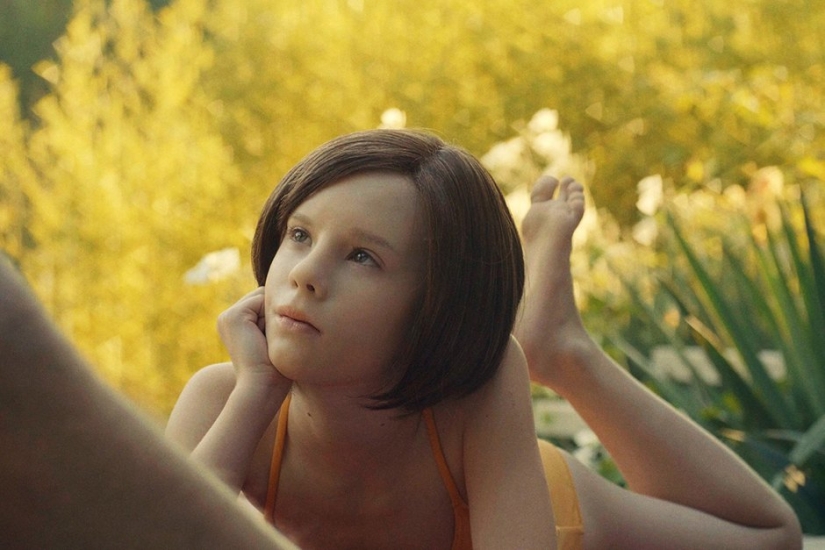
The controversial thriller about adults solving their own problems at the expense of children is divided into two parts. In the first, a ten-year-old android girl with programmed thoughts, a set of phrases and reactions lives in the summer outside the city with her "dad" (that is, an android buyer).
Dad uses it as a sex toy, which, apparently, is not an ethical problem in this reality - the robot fulfills the wishes of its buyer and is devoid of human feelings. You can dress up an Android and change its appearance, customize its vocabulary and habits, but the only thing you can't do is change its age.
So the mechanical child gets into the next family, where he is required to play a different role — to be the mummy of a long-dead boy. Vollner's film deals with several uncomfortable topics at once: pedophilia and parental pressure, artificial intelligence and gender fluidity, but mainly highlights the poisonous need of adults to use children for personal interests.
Keywords: Berlin | Women | Film Festival
Post News ArticleRecent articles

American Alex Greenberg, who moved to China, collects funny and brain-bearing examples of Chinese fashion in his Shanghai Observed ...

New Year is a holiday of magic and fulfillment of wishes. Naturally, I want this holiday to be remembered for a long time and to be ...
Related articles

American artist Lee Price is sure that eating is a completely natural process, but many are ashamed of their attitude to food, ...

No wonder long hair has been considered a woman's adornment for many centuries. Girls with luxurious curls attract attention and ...

Sex — is not only enjoyable, but also a very useful exercise. Orgasm improves the General condition of the organs and ...

In a recent issue of sexual harassment on everyone's lips. Inappropriate and Intrusive signs of attention began to see around, even ...